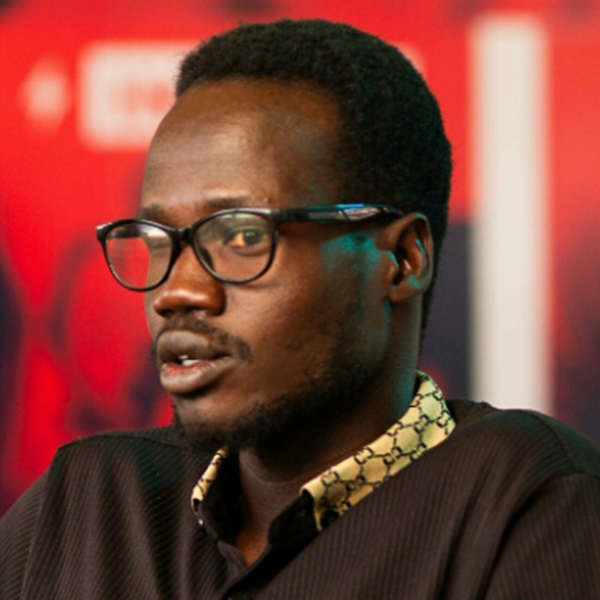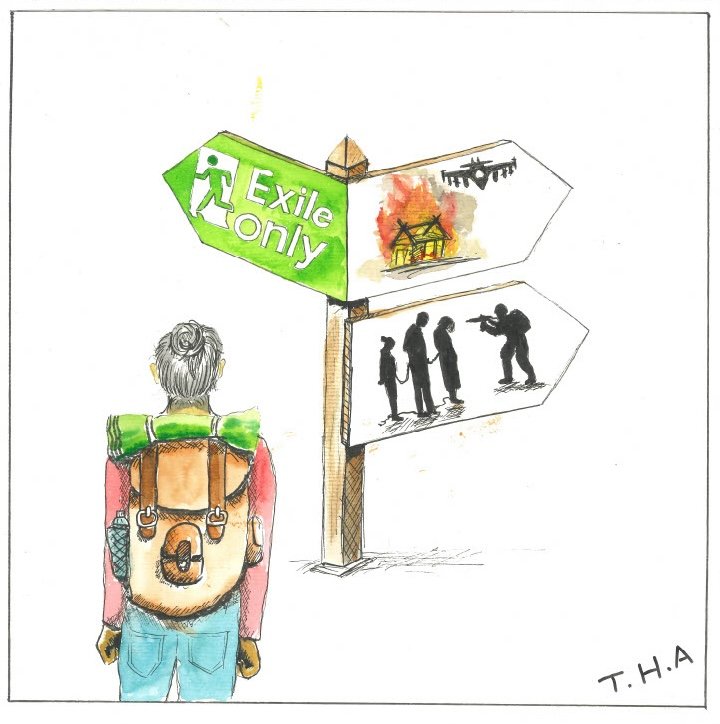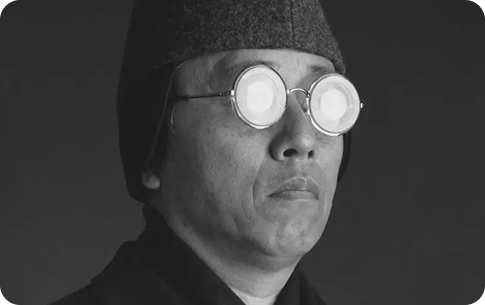
“My artistic creativity is inspired by my experience of the indignity of war in my country, South Sudan.”
- Stephen Pech Gai
Stephen Pech Gai, also known as Gawaar, is a refugee from South Sudan currently in Zimbabwe. He is a writer, photographer, an environmental advocate, and the Co-founder and Director of Refugee Coalition for Climate Action, a refugee-led, community-based organization founded in 2021. The 32-year-old formed the coalition after seeing the devastation caused by Cyclone Idai which hit the eastern parts of southern Africa in 2019 — including Zimbabwe, where he currently resides. The aim of the coalition is to mobilize and organize young people to lead climate and environmental interventions.
Gai’s work focuses on climate change, forced displacement, environmental justice, and refugee rights — all of which are issues which have had a profound impact on him and his community.
“I have been engaged in creative work since high school, but only in 2022, when my short fiction and nonfiction work was published, did I take it seriously. These stories, centered on climate change and refugee challenges, materialized my artistic activism. My artistic creativity is inspired by my experience of the indignity of war in my country, South Sudan, including the impacts of forced displacement, climate change, and the hard experiences of refugees,” he said.
Thanks to his work, he is not only a Global Citizen Emerging Creative, but has also been accepted as a 2025 Young Peacebuilders Program Fellow under the Collective Leadership Institute, and is the winner of the 2023 Modest Goat Prize.
“When I was displaced by civil war in 2013, the community I was born in was later submerged by a climate-induced flood that destroyed the richest part of our ancestral homeland and debilitated our livelihood and cultural heritage sites,” he explained. “Living in Tongogara Refugee Camp in Zimbabwe, I have witnessed and experienced firsthand the vulnerability of displaced communities to climate-induced disasters. Tongogara Refugee Settlement, a home to over 15,000 refugees and asylum seekers from Burundi, the DRC, and Mozambique, is located in the climate-stressed Chipinge District where summer temperatures reach 45 degrees Celsius (113 degrees Fahrenheit). When Tropical Cyclone Idai struck in 2019, approximately 6,000 residents were affected, with 1,060 homes, latrines, and boreholes destroyed or damaged in the refugee settlement.”
Leaving South Sudan’s repressed civic space which has seen civil war, censorship, and deadly protests, Gai has sought refuge in another country where civic space is repressed — Zimbabwe. His experience of civic repression is further complicated by Gai’s refugee status.
“Refugeehood doesn’t give one full freedom of expression because refugees are only given the basic conditions for survival,” he told Global Citizen “In Zimbabwe, refugees don’t have freedom of movement or easy access to work or be seen to have a political voice. While the challenges facing refugees are political and need political solutions, a refugee must not be seen to have a political stance, even on issues affecting refugees.”
He added: “Directly calling for policy reform that allows refugees to work and have freedom of movement may be seen as a political perspective —so I use stories that present the challenges of these policies to avoid repercussions. As a refugee advocate and climate activist, I avoid by all means to express words that attract scrutiny because I am mindful of the existing policy.”
Despite the challenges he faces, Gai remains hopeful that his work contributes to portraying a new narrative for refugees as people who can change their lives if given a fair chance. “I hope to showcase how refugees can also respond to disasters and climate change to build resilience and not as it is always seen, which is as people left at the mercy of humanitarian relief after a disaster strikes. Through storytelling, community mobilization, and advocacy, I aim to shift narratives, inspire action, and create sustainable solutions that empower marginalized communities.”
For the Emerging Creatives Program Stephen has produced a photo essay looking at the impact of climate displacement on people living in the Tongogara Refugee Camp.
THIHA'S WORK


Global Citizen’s Emerging Creatives Program provides a platform for emerging creatives in the Global South that are highlighting the need for open civic space worldwide. Through their art, they call for change, shine a light on social injustices, and advocate for the advancement of the Global Goals.
MEET THE MENTOR
Rakaya Esime Fetuga
POET
South African-born Simphiwe Molefe, uses his photography to show the impacts of energy issues in the country. His collection of images titled, Impilo Iyaqhubeka, translates to mean “life goes on” in isiZulu and looks at how every day members of his community cope with South Africa’s ongoing power crisis.
In 2023, South Africa’s civic space rating was downgraded from “narrowed,” to “obstructed” — the third worst rating a country can have. That’s why Molefe believes creatives like himself have a role to play in highlighting the effects of the failure of basic services such as the power crisis in South Africa.
